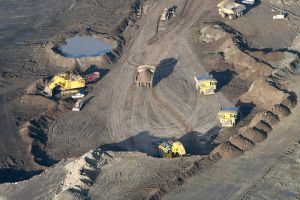Canada ranks sixth among the G8 countries on its readiness to compete in the low-carbon economy of the future, according to a new report from the National Round Table on the Environment and the Economy (NRTEE).
The NRTEE, an independent advisory group to the Minister of the Environment, has put together a set of 15 indicators to track countries' ability to make the successful transition to a low-carbon economy. Their rankings cover federal policies, but also include provincial government initiatives, the private sector, and other institutions (for example, the number of MBA programs in sustainability) — so the score is for Canada as a country, rather than simply for our federal government's performance.
 Canada ranks just behind the U.S. and finishes ahead of Italy and Russia. France, Germany and the U.K. take the top three spots. So while our government is adamant that we must harmonize Canada's climate policies with the U.S., there are actually much better role models among our G8 peers.
Canada ranks just behind the U.S. and finishes ahead of Italy and Russia. France, Germany and the U.K. take the top three spots. So while our government is adamant that we must harmonize Canada's climate policies with the U.S., there are actually much better role models among our G8 peers.
The report explains that "Canada's overall ranking is principally a function of an economy that is based on high-carbon energy emissions and of the weak performance in the policy and institutions category" (p. 16). The conclusion is clear: as the NRTEE says, "we need to do better" (p. 89) if we're going to compete in the global race for clean energy jobs.
A few other highlights from the report:
- Canada's energy-related greenhouse gas (GHG) emissions are growing faster than any other G8 country's (p. 37).
- Canada does best in the categories that include "non-government" (private sector and institutional) performance, like skills and innovation. In contrast, Canada isn't among the top three countries in any of the government policy indicators (p. 36). (We've been saying for a long time that Canadians are ahead of Ottawa in tackling climate change, and the NRTEE's report seems to agree.)
- Of the three energy categories, Canada came last in the category of "carbon emissions embodied in exports" — mainly because of our growing fossil fuel exports to the U.S. (p. 51). Similarly, Canada comes second-last in "carbon productivity" (economic activity per unit of GHG emissions), with growing oilsands production cited again as a key concern (p. 49). Canada does much better in the third energy category of low-carbon electricity (coming second behind France) — but our poor performance on the other two metrics results in an overall ranking of sixth on energy (p. 48).
- The report looks "behind" national emission targets to examine the accountability measures needed to make sure that countries meet them. So while Canada gets credit for having a 2020 GHG target, we lack any of the three key accountability measures we need to create confidence that the federal government will actually implement policies to make the target real (p. 83).
 The report weighs all 15 indicators equally, which is a straightforward approach but not necessarily a justifiable one: it's hard to make the case that MBA programs matter as much as pricing emissions in the transition to a low-carbon economy. (The report includes other forms of weighing in an appendix on p. 108, and Canada falls to seventh place if current capacity and governance are given more weight.) But the NRTEE has produced a useful report card on Canada's performance — one that uncovers a few relatively strong areas but finds plenty of room for improvement.
The report weighs all 15 indicators equally, which is a straightforward approach but not necessarily a justifiable one: it's hard to make the case that MBA programs matter as much as pricing emissions in the transition to a low-carbon economy. (The report includes other forms of weighing in an appendix on p. 108, and Canada falls to seventh place if current capacity and governance are given more weight.) But the NRTEE has produced a useful report card on Canada's performance — one that uncovers a few relatively strong areas but finds plenty of room for improvement.
Clare Demerse was the director of federal policy at the Pembina Institute until 2014.



